Horse
Why Can’t Horses Vomit? Amazing Facts
Vomiting is a vital mechanism, and that can help you survive in cases of emergencies. It can be one of the prime options for throwing out the toxic substances from your body. However, do you know that horses cannot vomit? Let us know why.
Contents
Why Can’t Horses Vomit?
Horses have the lower oesophageal sphincter that will help you get a one-way entry into the stomach. Food and water can pass through this valve and get into the stomach, but it cannot travel in the reverse direction, and due to this Horses can’t vomit.
The primary reason why horses cannot vomit lies in the design and strength of its lower oesophageal sphincter. Most of the animals, like humans and horses, have a lower oesophageal sphincter. This muscle is helpful in pushing the food down the throat. The sphincter in the case of a horse is one way and does not let the food travel back from your stomach.

The LES or Lower Oesophageal sphincter in the case of a horse is attached to the stomach at a lower angle. It will give the food one final push into the stomach and close. It cannot be opened from the internal pressure of the stomach once this valve is closed. In the case of humans and other animals, the LES can open in the reverse direction when the internal pressure builds up in the stomach.
What Keeps the Horses from Vomiting?
The reason why horses cannot vomit has its roots in evolution. The inability to vomit in horses has been a result of the evolution over the centuries. The horse in the wild is a prey animal, and thus a theory suggests that the inability to vomit is to ensure the support for full gallops from the predators.
Whenever a horse gallops, it will face an intestinal shift, and this shift can produce a hammering effect on the stomach. The back and forth motion-induced when galloping can produce a vomiting sensation in humans and other animals, but not in a horse. A theory in evolution suggests that the muscular oesophageal sphincter has been developed in exchange for speed. This helps it run faster against the predators without feeling a vomiting sensation.
The inability in horses is seen as a survival mechanism as part of the evolution. It was more important for the horse to retain the food in the body than eject it through vomiting or otherwise. Moreover, a horse has fussy eating habits. This will ensure that it will never eat any of the vegetables or plants that may be toxic in nature. This eating behaviour invariably nullifies the need for a vomiting reflex in a horse. That way, the evolution made it possible for the body to retain more food than having a system for ejecting it.
What Happens if a Horse Throws Up?
Horses CANNOT vomit. If it does, it can be an indication that the horse has its stomach ruptured. The reason for the rupture can be an extreme pressure in the stomach. You will never notice a horse vomiting or trying to vomit under normal circumstances.
If you notice a horse vomiting, it may be a clear indication that it is dying. There may be a few instances where they may be attempting to throw up the toxic substances. But, in most of the cases, if you locate a horse vomiting, it has severe issues affecting it. The most common issue can be a ruptured stomach. It can either be due to toxic substances that it might have ingested or it may be due to old age.
Horse Vomiting – What is the Difference between Humans & Horses?
In humans, the vomiting in many cases is involuntary and is handled by your brain on its own. You involuntarily draw a deep breath, the vocal chords are closed, the larynx is lifted, and the airway is closed. The surrounding muscles will now contract to squeeze the stomach. The food pipe will thus be relaxed, and you throw up the food through your mouth.
In the case of the horses, the travel of the food is only a one-way trip. The muscles that separate the food pipe and the stomach are much stronger than in the case of humans. That would mean, the valve or sphincter will not open even when the internal pressure in the stomach builds up.
This is precisely why the horse cannot vomit – either voluntarily or involuntarily. If the stomach faces a severe internal pressure, you will find that it ruptures, causing the horse to die, perhaps. Unlike in the case of humans, the stomach of a horse is located deep inside the rib case. This makes it rather difficult to squeeze it.
What is the Reason for Horse Throwing up Mucus?
You may notice a horse throwing up mucus from its nostrils and mouth. You may find a watery mucus coming out of the nose or mouth of your horse. This may also be accompanied by a gagging symptom. This is a clear case of a blockage in the oesophagus.
The reason for the mucus coming out from the nostrils and /or mouth can be due to a constraint or blockage in the oesophagus. This is medically termed as Oesophageal obstruction. It can also be caused as a result of an inability to swallow due to an infection or similar reasons.
The best option would be to remove the feed and water. Make sure your horse is calm and then call your vet. Call your vet immediately and never attempt treating it on your own and administering anything orally.
What Animals Cannot Throw Up?
Most of the vertebrates are capable of vomiting. While horses are one of the animals that cannot vomit, there are a few other animals that cannot vomit. Rats and smaller animals like hamsters do not have the ability to vomit.
A few of the animals that cannot vomit can include rabbits apart from frogs and horses. For the rabbits, it can be a huge concern as they tend to eat the fur just the way cats do. However, cats can throw up the hairballs if that makes them uncomfortable, rabbits are unable to vomit and thus and can need assistance from the vets.
The Closing Thoughts
It is almost impossible for the horse to vomit, and this has more to do with the oesophageal construction that the horse’s body has. The influential bands of muscle that it has can make it very difficult for the horse to send the food on a return trip.
That should explain why you need to take extreme care when handling a horse that may have been suffering from food poisoning or any other sort of issues with respect to its vomiting. If you find a horse vomiting, it may be an indication that the horse is facing a severe issue. In many circumstances, it is not unlikely to find a horse dying when it vomits. In all probability, the only time that you may find a horse vomiting is when it is dying. A bad thing, but that is how the things are with a horse’s digestive system.

-
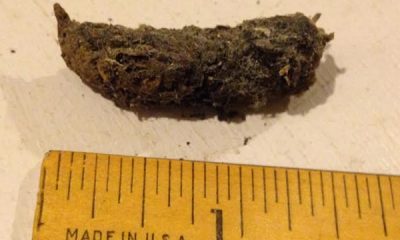
 Skunk4 years ago
Skunk4 years agoWhat Does Skunk Poop Look Like? Images & Identifications
-

 Bunny4 years ago
Bunny4 years agoPregnant Rabbit Labor Signs #Test#Symptoms#Age#Length
-

 Turtles4 years ago
Turtles4 years ago8 Basking Rocks/ Platforms for Turtles – A Perfect Guide
-
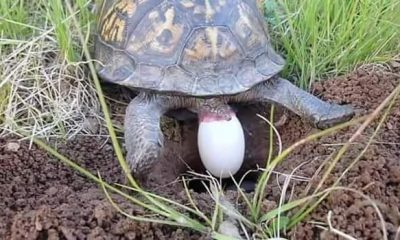
 Turtles5 years ago
Turtles5 years agoHow To Take Care of Turtle Egg At Home?
-
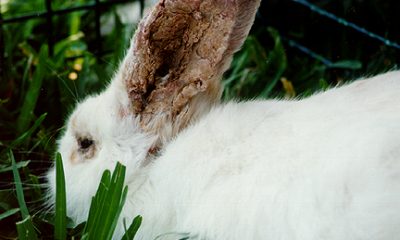
 Bunny5 years ago
Bunny5 years agoHow to Get Rid of Mites on Rabbits? #NaturalRemedies #Video
-

 Horse4 years ago
Horse4 years agoHow Much Weight Can a Horse Carry? #Clydesdale #Friesian #Mustang #Draft
-

 Turtles4 years ago
Turtles4 years agoHow to Take Care of Snapping Turtle Eggs? #Incubating #Hatching
-
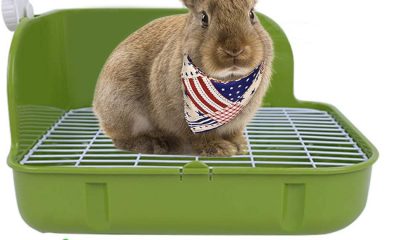
 Bunny5 years ago
Bunny5 years agoHow to Potty Train a Rabbit in House? Tips on Litter Training



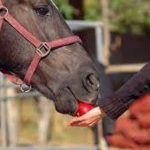

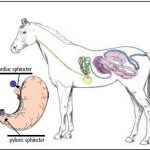
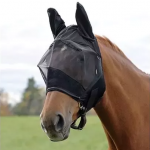

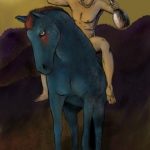

Pingback: How much weight can a horse carry? #Clydesdale #Friesian #Mustang #Draft - YardPals